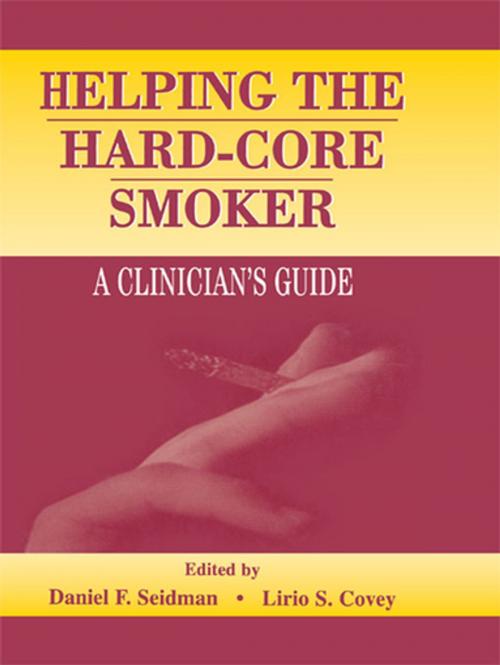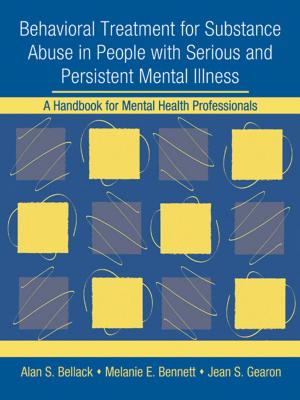Helping the Hard-core Smoker
A Clinician's Guide
Nonfiction, Health & Well Being, Psychology, Clinical Psychology, Mental Health| Author: | ISBN: | 9781135682866 | |
| Publisher: | Taylor and Francis | Publication: | January 1, 1999 |
| Imprint: | Routledge | Language: | English |
| Author: | |
| ISBN: | 9781135682866 |
| Publisher: | Taylor and Francis |
| Publication: | January 1, 1999 |
| Imprint: | Routledge |
| Language: | English |
This book constitutes a major new resource for professionals working with hard core smokers and their families. It is designed as a practical, clinically useful and up-to-date guide for all those in a position to intervene: mental health professionals, physicians, dentists, nurses, pharmacists and other health care professionals, clergy, human resource and employee assistance program corporate staff, and teachers and guidance counselors.
New research suggests that difficult-to-treat smokers often have emotional problems adjusting to stopping smoking. Some also have psychiatric diagnoses or abuse other substances. These are factors which interfere with their efforts to quit.
Because these difficulties have been poorly understood, hard-core smokers have not been provided with adequate resources and skills to overcome their addiction. These smokers are in need of increasingly comprehensive assessment and treatment.
Despite massive public health education about the dangers of cigarette smoking, rates of smoking among the population are no longer declining in the United States and the success rates of clinical programs for smokers remain low. Helping the Hard-Core Smoker seeks to explain why current approaches are often inadequate and how best to help today's highly nicotine-dependent smokers who are struggling with their addiction quit.
This book constitutes a major new resource for professionals working with hard core smokers and their families. It is designed as a practical, clinically useful and up-to-date guide for all those in a position to intervene: mental health professionals, physicians, dentists, nurses, pharmacists and other health care professionals, clergy, human resource and employee assistance program corporate staff, and teachers and guidance counselors.
New research suggests that difficult-to-treat smokers often have emotional problems adjusting to stopping smoking. Some also have psychiatric diagnoses or abuse other substances. These are factors which interfere with their efforts to quit.
Because these difficulties have been poorly understood, hard-core smokers have not been provided with adequate resources and skills to overcome their addiction. These smokers are in need of increasingly comprehensive assessment and treatment.
Despite massive public health education about the dangers of cigarette smoking, rates of smoking among the population are no longer declining in the United States and the success rates of clinical programs for smokers remain low. Helping the Hard-Core Smoker seeks to explain why current approaches are often inadequate and how best to help today's highly nicotine-dependent smokers who are struggling with their addiction quit.















